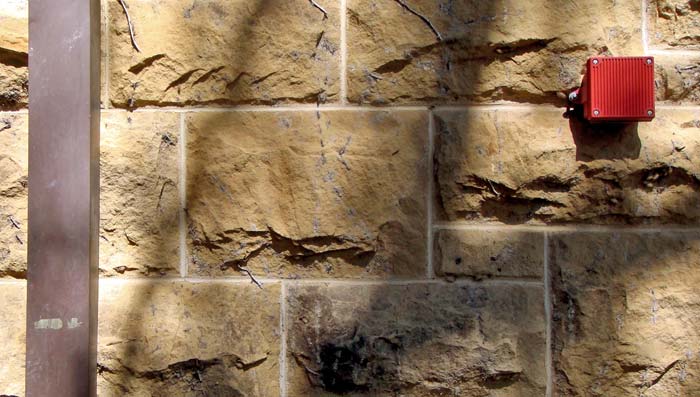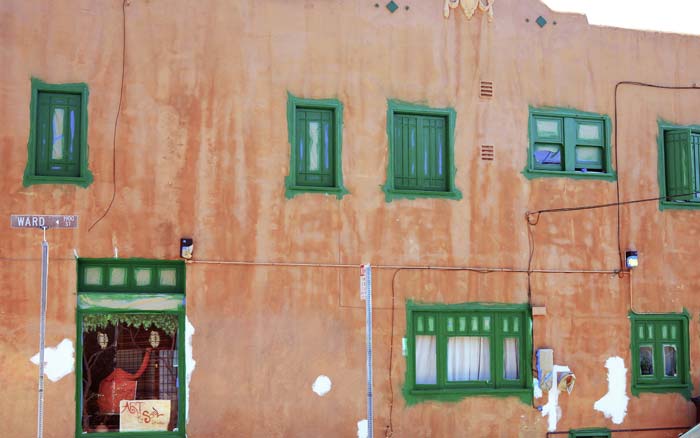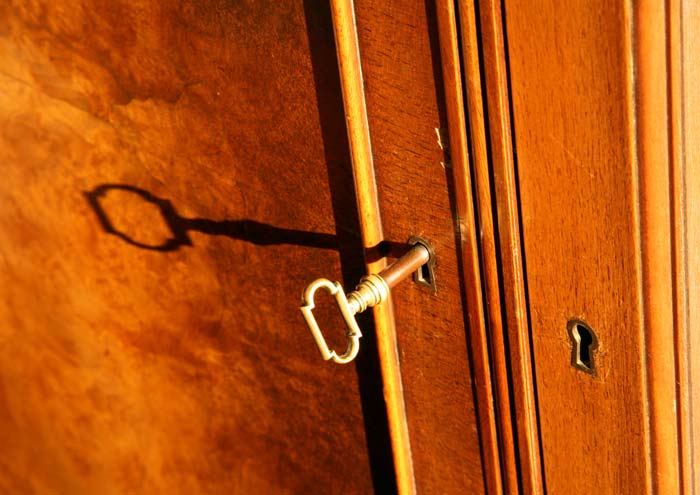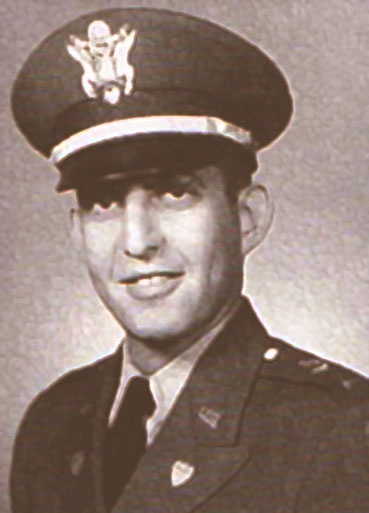
Cairo, Good-bye
by Richard A. Lupoff

Arlen had his driver in his hand and was all teed up when he heard his cell phone tinkling Happy Days Are Here Again, the old FDR-era Democratic campaign song. He muttered, “Cell phone,” opened the flip, and read the incoming ID. “Clarissa,” he told his partner. “Hold a sec.”
To his wife he said, “What, Norm and I are on the fifth. What’s the matter?”
Arlen listened, nodded, said, “Okay,” and closed the phone. He slipped it back into his pocket. To his golfing partner he said, “You’ll never guess.” There was a smile on his face.
Norm said, “Okay, I’ll never guess. What?”
“We won.”
“Really?”
“Really.”
“We never win. We’ve been buying raffle tickets ever since we’ve been neighbors. What, thirty, thirty-five years? I always thought you were a Jonah.”
Arlen laughed. “Not this time. Come on, I don’t feel like playing golf.”
They climbed into the electric cart and headed back to the clubhouse. They had a couple of drinks, over-tipped the bartender, and headed for the parking lot. As they climbed into Norm’s blue-and-cream Acura Norm said, “Wait. I’d better call Nettie.”
Arlen said, “No need of that. You can be sure Clarissa called her as soon as she found out. Probably before she called me.”
Norm’s cell phone chimed. “Yes. Arlen told me. We’re on our way now.” He nodded to Arlen. The grin on Arlen’s face threatened to crack it wide open.
The four of them celebrated with dinner at Sorrento, their favorite restaurant. At the end of the meal, Norm raised a glass of Chianti and proposed a toast. “To a super vacation. The ladies can even get new wardrobes for the trip, as far as I’m concerned.”
Arlen said, “Hear, hear!”
Clarissa and Nettie exchanged smiles.

The big Boeing landed at Miami International and they were met at the luggage carousel by a gray-uniformed chauffeur holding a cardboard sign. In big computer-generated letters it said, Hirsch – Gennario Party. A limousine whisked them over the MacArthur Causeway to Miami Beach and up Collins Avenue to the Fontainebleau. They were met by a concierge and checked into a Versailles Suite on the thirty-seventh floor.
Once they’d tipped the bellman they separated into plush bedrooms and agreed to meet in an hour. Arlen lowered himself onto the huge bed and sighed.
Clarissa had opened her makeup carrier and was picking through its contents. She turned to her husband. “Well, what do you think?”
“I’m thinking about the last time I was in this hotel. A fraternity party. That was—”
“Let me guess. Forty years ago.”
“Would you believe, closer to fifty? Ahh, we are so old, sweetheart, so old.”
She shook her head. “Never mind. We have our health. Our children are grown up and married, our grandchildren... And not one of them was ever a drug addict or a gangster. Arlen, we’re very lucky. And we’re here to have fun. Let’s just have fun.”
After a conference with the Gennarios they phoned downstairs to the Gotham Steakhouse for reservations. They were tired from the day’s travel. Staying in the Fontainebleau for dinner seemed a good idea. Dressed to the nines they rode the elevator to the restaurant. The food was splendid. The wine was delicious. Best of all, they could ignore the prices. They’d won the raffle and their vacation was on the cosmetics chain that sponsored the raffle each year.
Arlen enjoyed the best night’s sleep he’d had in years.
In the morning they ordered breakfast from room service. Clarissa asked for a cup of tea and toast. Arlen indulged himself: half a grapefruit, eggs sunny side up, an English muffin with butter and orange marmalade, coffee. Clarissa clucked at him but he said it was their vacation, he was entitled to eat what he wanted.
The Versailles Suite included a terrace where they sat enjoying the morning sun.
Breakfast arrived accompanied by a neatly folded copy of the MiamiHerald. They sat at a table overlooking the ocean. Arlen leafed through the paper, then stopped and read an item in the local news section. He shook his head.
Clarissa asked what was the matter.
“They’re tearing it down.”
She waited for him to continue.
He read, The oldest movie theater in Miami Beach, the venerable Cairo Cinema, will be demolished in a matter of days. Efforts by neighborhood preservation groups were rejected by State Superior Court Judge Marisol Gil-Martinez on grounds that the plaintiffs lacked standing and that they had failed to prove any compelling government interest in the preservation of the building.
Arlen sliced a triangle of egg and swallowed it with a gulp of fresh coffee. He sighed and shook his head, then continued, Constructed in the late 1920s, the Cairo featured a mixture of faux Egyptian and Art Deco artistic styles. The building survived the transition to sound and other technological developments over the decades, but declining attendance caused its conversion to other uses in recent years. The building was purchased by Timothy Torrance III, great-grandson of the theater’s architect, who attempted to convert the Cairo into a repertory art-film venue, but failed to do so.
“There simply wasn’t the money to do what needed to be done,” Torrance told the Herald. “This is a real loss to the community, but I guess people just aren’t interested any more. They’d rather sit home and watch slasher films on video.”
“That’s it?” Clarissa asked.
Arlen laid the paper on the table. “I loved that theater.”
“I never knew.”
“I grew up in that neighborhood, a block away from the Cairo. My parents used to take me there. They had great kid shows on Saturday afternoons. A western with Johnny Mack Brown or Rod Cameron, a comedy with Abbott and Costello or the Bowery Boys, cartoons...Mighty Mouse or Bugs Bunny or a Fleisher Superman...and two chapters of a serial. The Purple Monster Strikes, Secret of Treasure Island, Buck Rogers.”
He spread marmalade on half the muffin, chewed and swallowed. “When I got older I worked there.”
Clarissa said, “That you’ve told me.”
“I was an usher. You should have seen me, sweetheart. What a uniform they gave me! Royal blue jacket with brass buttons and military epaulets. Black trousers with a gold stripe down the side. I wore a cardboard dickey and a clip-on bow tie. Oh, was I ever something!”
He shook his head.
“No more, eh?” He picked up the Herald and stared at the story about the pending demolition of the Cairo. He read it again as if that could make it say something different, but it didn’t.
The sliding door moved silently on its track. Norm and Nettie joined Arlen and Clarissa on the terrace. Norm said, “I see you’ve already got your food. We just ordered ours.”
Arlen handed the Herald to Norm, who opened it to the sports section. “Greyhounds running at Flagler.” He folded the newspaper to an ad. “Want to go?”
Nettie was enthusiastic. “We can spend the morning at the pool, have a bite downstairs and see the action.”
Clarissa looked dubious. “Isn’t it cruel? Don’t they chase a rabbit or something?”
Norm laughed. “It’s a mechanical rabbit. It isn’t alive.”
“Still, I’ve heard they kill the dogs when they get too old to race.”
“People adopt them. You know the McKees over on Chestnut Avenue? They adopted a couple of greyhounds. They say they’re wonderful pets. They love to sit on the couch and watch television. Lassie and Scooby-Doo.”
Arlen said, “You go ahead. Clar, sweetheart, you go ahead with Nettie and Norm. I’ll meet you back here and we’ll go out tonight.”
Clarissa frowned. “Don’t you want to go, Arlen?”
“I don’t think so. I think I’m going to...” He let the sentence trail away.
Norm said, “Going to what, Arlen? Come on, spill.”
“Nothing important. You’d just be bored.”
“Maybe not. What?”
Arlen picked up the Herald. “I thought I’d take a ride uptown. I used to live there.”
“Understand,” Norm nodded. “You want to stroll around the old neighborhood. I got it.”
Room service arrived with the Gennarios’ breakfast.
Later, Nettie and Norm and Clarissa picked up a rental Toyota and pulled into Collins Avenue and headed for the causeway and the Flagler dog track. Arlen waved them away, then walked to the corner and waited for a northbound bus. He was surprised at how expensive the fare was. He was relieved when the driver pointed to a sign that indicated Arlen was entitled to a senior discount. He always drove his car at home, an ‘04 Oldsmobile Alero. It was the last Olds model ever built. His father had once owned a ‘61 DeSoto, the last of its breed, and Arlen had vowed to keep the Alero going for the rest of his life.
He got off the bus, waited for the light to change and crossed Collins Avenue.
There was the Cairo Cinema. The paint, once a vivid ocean blue and Egyptian gold, was faded and peeling. Most of the lights on the vertical sign were broken. Lettering on the marquee spelled out a message, GOOD-BYE FROM THE CAIRO WELL MISS YOU. The letters were mismatched, there was no apostrophe, one of the E’s was a backwards three and the L’s were inverted sevens.
The front doors were covered with heavy plywood and the glass cashier’s box was boarded up. To the right of the Cairo he could see Kaplan’s Kandy Kastle. He grinned. To the left where a children’s shoe store had once operated was a franchise hardware establishment. Pedestrians in light clothing, broad-brimmed straw hats, colorful shirts and shorts passed him.
He stood looking at the Cairo for a few minutes, then entered Kaplan’s Kandy Kastle. Once upon a time he’d spent most of his allowance at Kaplan’s. Ice cream cones were a nickel for a single scoop, eight cents for a double. He used to ask for strawberry and chocolate, Strawberry on top,please, and Mrs. Kaplan used to make it that way to oblige a favorite customer. He bought his comic books at Kaplan’s. Fat, exciting issues featuring Airboy and his bat-winged airplane, Green Lantern with his power ring. In brightest day, in darkest night....

The Kaplans had two daughters, Irma and Akiva. Irma was a year older than Arlen. Akiva was three years older than Irma. Akiva, he knew, had gone to college in Oregon, married, and settled permanently on the West Coast. Irma, even though she was older than Arlen, had taken a liking to him. They played together as children and had been sweethearts of a sort during their teens.
Irma worked at Kaplan’s while Arlen ushered at the Cairo. On their days off they would often go to the Cairo or to the Suez, the movie house opposite the Cairo on Collins Avenue. By this time the theaters belonged to the same chain and free admission to either was a perk for employees.
There were two females on the staff of the Cairo, Mildred and Sally. The rest of the staff was male: Tim Torrance was the manager. Jack Corelli, Marty Wollner, and Arlen were ushers. Mr. Hopkinson was the projectionist. He ruled his private domain up a flight of stairs at the rear of the auditorium. Everyone else was on first-name terms but he was always Mr. Hopkinson.
And there was Mr. Isaacs, the doorman. Customers would buy their tickets from Mildred or Sally. The two girls alternated selling tickets and operating the candy counter. Nobody knew how old Mr. Isaacs was. There were legends about him. General belief was that he was a retired widower with a fortune in investments and that he worked only because he was bored.
When the Suez showed The Black Widow, a thriller with Ginger Rogers, Gene Tierney, and Van Heflin, Arlen and Irma crossed the avenue and found seats in the rear of the auditorium. They were kissing furiously when Arlen got up the courage to sneak his hand over Irma’s shoulder, inside her blouse, inside her bra. The thrill of her breast in his hand, the silky warmth of her skin, the rigid nipple in his palm, had never left him.
A year later she left town to attend an Ivy League college. Arlen stayed behind, attended the local university, was drafted into the service, and found himself on an army post near Indianapolis. He managed to pull a cushy assignment. He had most Friday nights off and attended the local synagogue. He met Clarissa there. They married, and when he got his discharge he went to work in her father’s business.
From his own parents in Florida he learned that Irma had moved to Israel. She sent him a picture postcard written in Hebrew and English, a rider on a camel with a pyramid in the background. She wrote, Remember the Cairo! Love, Irma! A year later, riding in a jeep, she had been killed by a sniper’s bullet.
He pushed open the door of Kaplan’s Kandy Kastle. The store was filled with straw hats, souvenir tee-shirts with Kaplan’s Kandy Kastle silk-screened on them in incandescent ink, baseball caps with cartoon characters embroidered on them, bathing trunks, beach towels, plaster fish mounted on plaques blazoned with comic sayings, playing cards, souvenir pens, key chains.
“I used to live here,” he said to no one in particular.
A dark-skinned woman wearing an Indian sari behind the counter walked over to face him.
“Can I help you, sir?”
“I used to come in here all the time.”
She smiled encouragingly.
“Is Mr. Kaplan here? Mrs. Kaplan?” he asked.
The woman shook her head. She turned aside and called a name. At least Arlen thought it was a name. Nadisu, or something like that. A dark-skinned man wearing a black silk suit, white shirt, and midnight blue tie, appeared from somewhere. He had glossy, wavy, black hair. The woman had worn a head scarf.
“Can I help you, sir?”
“The Kaplans,” Arlen managed.
“I do not know them.”
“This store is called Kaplan’s. I used to buy comic books here. And ice cream cones.”
“We don’t sell comic books or ice cream cones, sir. There is a big comic book store on Lincoln Road. There is an ice cream store nearby.”
“The Kaplans.”
The man frowned in concentration. “I bought this store from Mr. D’Onofrio six years ago. It was called Kaplan’s then. It may have belonged to a Mr. Kaplan before Mr. D’Onofrio.”
Arlen nodded. He backed away from the counter, from the courteous, dark-skinned man and woman. He left the store. The afternoon sun was strong but he stood in the shade beneath the Cairo Cinema marquee and it was comfortable there. There was even a hint of a breeze tinctured with the odor of seaweed and salt water.
He examined the plywood covering the theater doors hoping to find a way in but he could not find one. However there was an alley between the Cairo and Kaplan’s Kandy Kastle. At the end of the alley he could get to the rear of the theater. In the days when he’d worked at the Cairo he had learned how to jimmy the ring-and-hasp that held the theater’s iron delivery doors shut, and swing the doors wide without opening the padlock.
He made his way down the alley. It was strewn with old newspapers and fast food wrappers and other, less savory trash. He used his trick – it came back to him, even after all these years – and managed to get the iron doors open. They were rusted and heavy and he was barely able to squeeze inside.

He was backstage. The room was musty, the air hot and stale. The light was dim, the afternoon daylight seeping through the delivery doors. He knew the theater well enough to make his way to the edge of the old stage, down half a dozen steps into the auditorium itself. He knew where the light switches were but when he tried them, not surprisingly, he found that the power had been cut off.
There wasn’t much he could do in the dark.
He made his way back to the alley, back to Collins Avenue, into the hardware store next door. A Puerto Rican-looking clerk took his money for a powerful flashlight, asked in flawless English if there was anything else he wanted, and thanked him for his business when Arlen told him no.
Back into the sunlight. Back into the alley. Back into the theater. He shone his flashlight around the auditorium. The Egyptian style bas reliefs that had both fascinated and frightened him as a child were still there. Crocodile-headed and ibis-headed gods, reed boats, women in snow-white gowns, men wearing pale kilts, leopards on leashes and painted pyramids and sphinxes and temples.
He walked to the back of the auditorium, out into the lobby, downstairs to the men’s and women’s rest rooms. The lower level of the theater had been decorated with oversized photo-portraits of the great movie stars of the era. Gary Cooper in a foreign legion kepi, Garbo in a black jersey gown, Gable as Rhett Butler, Harlow in a dress the color of her hair. The pictures were still there. Somehow they had survived the decades of neglect and abuse.
Back in the auditorium he walked to the foot of the stage, turned and sat in a front row seat. Customers had complained when they had to sit in the front of the room, and he could understand that. They had to lean back to see the picture, it was uncomfortable, and the image on the screen was distorted.
He moved to a more comfortable seat, halfway toward the rear of the auditorium. He settled in and half-closed his eyes. He could almost imagine an image before him. Rod Cameron leading a posse, chasing a gang of rustlers across a cactus-studded butte. The camera cut between pursuers and pursued. Clouds of dust rose from the horses’ hooves. Puffs of smoke exploded from six-shooters. All in beautiful chiaroscuro. All accompanied by the pounding of hooves, gunfire, shouts, music.
Arlen leaned back. The projector beam danced overhead as light reflected from decades-old dust.
He turned on his flashlight, pushed himself to his feet, struggled to the end of the row and trotted to the back of the room. He climbed the stairs to the projectionist’s booth. The flight was longer and steeper than he remembered, but when he got there he found no sign of Mr. Hopkinson. There was no whir of the projector. In fact, there was no projector. The booth was empty.
He made his way carefully back to the auditorium. The screen was dark. He pushed his way through the iron delivery doors, shoved them closed behind him, trudged back to Collins Avenue.
There was a bench at the bus stop, a tasteful sign with a gold Star of David against a maroon background. ETERNAL JUDEA, it read in heavy gilt letters, Funeral Service Since 1948, With Respect for the Deceased and Concern for the Living.
A very old man sat on the bench, a straw hat shading his head, a short sleeve shirt and light pants offering protection from the sun.
Arlen peered at him.
“Mr. Isaacs?”
The old man turned his face toward Arlen.
“Mr. Isaacs? Is that you?” Good God, the man must be older than Moses!
“Who’s that? I can’t see you,” the old man said.
“Arlen Hirsch.”
“Arlen Hirsch the usher?”
“Yes, sir. You are Mr. Isaacs, aren’t you?”
“Arlen, you came back. The theater is closed, you know. You can’t get your job back. No more Cairo, Arlen. I come here most days just to sit and look at it. I can’t see any more, but I like to come and sit. You must be all grown up now, Arlen.”
That brought a smile. “Yes, Mr. Isaacs.”
The old man hummed tunelessly. It went on so long, Arlen thought he’d forgotten him, or maybe he had fallen asleep, but then the old man said, “How old are you, Arlen Hirsch?”
Arlen told him.
The old man said, “Really? Really? If you’re that old now, then I must be—” He shook his head slowly. “No, no, that’s impossible.” After a pause he said, “Here’s your bus, Arlen.”
“It is?”
“Coming, it’s coming,” the old man nodded toward Surfside, farther uptown. “I can tell. I know by the sound.”
Arlen looked. The bus was a block away, approaching slowly, the late afternoon sun glinting off its metal body and shield-like windows.
“How will you get home, Mr. Isaacs?”
“Don’t worry about me, Arlen. My daughter comes for me every day. No, that’s wrong. I mean my granddaughter.” He took off his hat and rubbed his forehead. “No, my great-granddaughter. That’s who. She comes for me every day. You go ahead. Remember, I come here every day. Almost every day. Good-bye, Arlen. Say good-bye to the Cairo.”

For dinner they went to Joe’s Stone Crabs in South Beach. Everyone had to clean up first, to rid themselves of the day’s perspiration. Arlen had a layer of dust to deal with, but their luxurious suite had wonderful showers and he luxuriated under the spray and lay on top of the bed for half an hour before dressing.
He knew he was being quiet during dinner. He hoped that no one would press him about his day, and fortunately no one did. Clarissa and the Gennarios had pooled their bets and come away almost two hundred dollars ahead.
“Love those doggies,” Norm said, “I just love those doggies. You should have been along, Arlen, you would have had a great time. We were losing money most of the afternoon, and then came the last race. Nobody knew nothing about these dogs, you know? They had a racing form but nobody knew nothing, we didn’t have time to study the charts, so how did we decide?”
Before Arlen could answer, Nettie said, “Wait, Norman, wait. Tell ‘em who picked the winner.”
“You did. Okay, Nettie, you did. You tell ‘em.”
“Clar and I. We picked the winner, Arlen. You should have been there. Norman wanted to bet on the favorite, you know? A dog named Far Centaurus. Can you imagine? That’s a stupid name for a dog.”
Norman growled.
“For cripes sake, Nettie, if you want to tell ‘em, tell ‘em, and if you don’t want to tell ‘em, say so and I’ll tell ‘em.”
Clarissa had been working on a crab leg with a pair of pliers. She put down the pliers with a clatter. “Norman had been playing favorites all afternoon and losing, so Nettie and I made him put a bundle on the longest shot in the race. A bundle, Arlen. I mean, a bundle. Can you guess what the dog’s name was? You can’t? It was Mussolini. Can you imagine sticking a poor doggie with a name like that? Why would anybody name a dog Mussolini? He won going away and we got back everything we’d lost and two hundred dollars profit. Two hundred dollars, Arlen.”
He had trouble sleeping that night. They’d shared a cab back to the Fontainebleau, paused in the lobby bar for a nightcap, and gone upstairs.
Clarissa found Arlen standing on the balcony, watching the surf as it ran up on the beach and then retreated, bright moonlight reflecting off the Atlantic. A ship stood silhouetted against the horizon.
“Arlen?”
He nodded in response, not knowing whether she observed the movement or not.
“Arlen, are you mad at me?”
He shook his head abstractedly, focusing on the ship, a black freighter in all probability, headed perhaps for Bilbao. “No,” he managed.
“Because I was a little bit loud at dinner, wasn’t I? I was a little bit tipsy. I mean, Norman is a lovely man but sometimes he seems to get too full of himself. He was picking greyhounds all afternoon and Nettie and I had ideas and he just brushed us aside and kept making bets and kept losing, and then we both picked Mussolini and made him bet on him, we made him bet on him, and Mussolini won and we won all that money, oh, Arlen, you would have loved it. I know he’s your friend but you know what I mean. He couldn’t decide whether to be happy because we won or angry because he didn’t pick a winner all day and Nettie and I picked a long shot and he won. Arlen, you would have loved it.”
Arlen said, “It’s all right, Clar sweetheart. It’s all right. I’m glad you won the money. You and Nettie.” He gripped the railing with both hands.
“Won’t you come to bed, Arlen? I miss you in bed.”
“In a little while.”
“Is something the matter?”
“You know what, Clar? I miss the palms. At home it’s all different. In Indiana it’s all right. But not in Florida. I grew up with my windows open and the palm fronds clattering in the breeze. Did you know the palm fronds make a real clattering sound when the wind blows?”
“No.”
Why did she sound frightened?
“They do. They did. I loved this place. Now it’s all different. Now there’s just the hiss of the air conditioning. So I can’t sleep.”
“You slept last night.”
“I was tired.”
“Arlen.”
“Please go to bed. I’ll be in soon.”

The next day he begged off again. The girls were going on a shopping spree and Norm wanted Arlen to play golf with him. “It’s our lucky day, Arlen. I can feel it. We won this vacation. We won at the doggies. Come on.”
Arlen begged off. He said he wasn’t up to it. He told Norm that he could pick up some partners, make a casual foursome. “Good luck, Norm. I’m sure you’ll win. We’ll meet the girls back here afterwards and celebrate. After all, this is our last night in town. Some vacation. Long weekend is more like it. Well, who can complain, for the price of a raffle ticket?”
He stood on the corner until the bus came and he paid the senior discount price and rode up Collins Avenue looking at all the familiar sights and at all the changes. When the bus pulled to the curb at his stop he climbed off, waited for the light to change, and crossed the avenue. He had brought his flashlight with him.
Someone had pasted crudely-lettered signs on the plywood pleading, SAVE THE CAIRO! IT ISN’T TOO LATE! Someone else had posted a professionally-printed notice advertising Cairo Condos on Collins, with an artist’s rendering of a modern high-rise residential tower and a plastic dispenser full of promotional brochures.
Arlen looked over his shoulder, feeling vaguely guilty, and made his way down the alley between and theater and the now candy-less Kaplan’s Kandy Kastle. He worked his trick on the iron delivery doors, scrambled through the narrow opening, and pulled the doors shut behind him. He clicked on his flashlight and followed its beam to the rear of the auditorium, up the narrow flight of stairs and to the projectionist’s booth.
The door to the booth was unlocked, as it had been the day before. He edged it open and stepped inside. The dust was thick everywhere except where he saw his own day-old footprints. The heavy wooden table that the projector had stood on was still there, its surface scratched, cracked and dry, but there was no sign of the projector. It could hardly have been sold. It was far too old and too difficult to maintain. Arlen remembered Mr. Hopkinson showing him how to thread it. Not only did the thirty-five millimeter film have to pass through the complex series of gates in the correct order, but every loop had to be of the exact right size or the sound wouldn’t synch with the actors’ movements. He knew how audiences reacted when the actors’ lips moved a second before or two seconds after the loudspeakers carried their words!
Nowadays it was all automated. Mr. Hopkinson and his colleagues were a dying breed. Nowadays every multiplex had an array of flat-pan projectors that practically ran themselves.
Downstairs again he directed his light at the empty candy counter only to discover that it wasn’t quite as empty as he’d thought. Apparently someone – surely not Mildred or Sally! – had left crumbs of popcorn or candy on the shelves, and a family of eight-legged scavengers had established a thriving colony amidst the ruins. As soon as the light hit them there was a scurrying and a mass movement and the counter was again deserted.
Arlen returned to the auditorium and found a comfortable seat. He spread his arms over the backs of the adjacent seats and lay back, his eyes fixed on the screen. He felt that he could retrieve a film from the warrens of recollection, one that he’d seen so many times he practically knew it by heart. He could close his eyes and see it, hear it, live it for an hour or two, before saying good-by forever to the Cairo.
At first it seemed a difficult decision, but once he started discarding candidates he realized that there was only one possible choice, at least for him, for Arlen Hirsch. It had to be Casablanca.
The music blared, the Warner Bros. logo filled the screen, the images sparkled like diamonds and onyx. Bogie and Bergman, Ilsa and Rick. Paul Henreid as Victor and Claude Rains, the great, underrated, brilliant Claude Rains, as Louie Renault. Conrad Veidt, Sydney Greenstreet, Peter Lorre, Dooley Wilson, Cuddles Sakall.
“What o’clock?”
“Such o’clock!”
“I’m shocked, shocked!”
“Round up the usual suspects.”
“We’ll always have Paris.”
“This could be the start of a beautiful friendship.”
The Blue Parrot, the Nazis, the Free French.
He felt the warmth of Irma’s cheek against the side of his neck. He slid an arm around her, over her shoulder. With her hand she guided his hand. He felt – he felt a stirring that he hadn’t felt in years.
Dooley was playing, You must remember this, a kiss is just a kiss... That funny little rolling piano. He heard the tinkling notes but they weren’t the notes of a piano. They weren’t coming from the speakers hidden behind the screen.
He opened his eyes with a jolt. The tune was Happy Days Are Here Again. He found his cell phone in his pants pocket, flipped it open.
“Arlen, are you all right?”
He only grunted. He looked around. The screen was dark. The auditorium was dark. He clicked on his flashlight, shone it in a circle; he was alone with the animal-headed gods of Egypt.
“Arlen?”
“I – I must have fallen asleep. What time is it? Clarissa?”
“Nettie and Norm are waiting downstairs. I’m beside myself. Where have you been? I thought something awful had happened. Are you all right?”
He staggered to his feet, shone the flashlight on his wristwatch, stumbled toward the door. He was still holding his cell phone. “I’m coming home,” he managed to say. He was still groggy. “I was working late at the office. I must have dozed off.”
“Arlen, you’re not at the office. We’re in Miami Beach. Don’t you remember? Is something the matter? Arlen!”
“No,” he said, “nothing is the matter, Clar, nothing is the matter, nothing. I remember everything.”
About the Author

Richard Allen Lupoff is a science-fiction and mystery author, who has also written humor, satire, non-fiction and reviews. In addition to his two dozen novels and more than 40 short stories, he has also edited science-fantasy anthologies. Among his most famous novels are the duology Circumpolar! and Countersolar! from the mid 1980s.
Please mention the author or this piece's name in your comment.